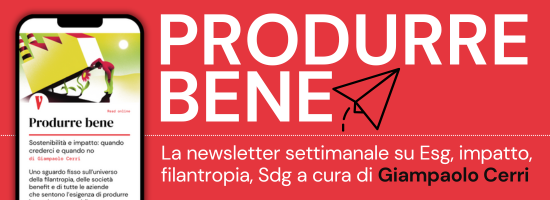Cooperation: Access to credit and social citizenship at risk in Ecuador

A regulatory provision, contained in the Organic Law on Public Integrity and approved by the Ecuadorian National Assembly on June 24, grants the executive the power to force credit cooperatives to transform into banks with the legal status of joint-stock companies (società a azioni), under the supervision of the Superintendencia de Bancos in the event of suspected systemic risks to the financial system.
For Federcasse , this provision represents a "threat" with serious and irreversible consequences "for Ecuador's cooperative banking system," and "conflicts with the great social and economic journey that over the course of over twenty years has allowed the Andean country to develop a large democratic system of access to credit, especially for traditionally excluded peasant communities."
Defending the experience of mutualistic cooperation in Ecuador means defending the very idea of cooperation as a way to contribute to a better world, one in which everyone can have equal duties and equal rights of social and economic citizenship.
The Italian Federation of Cooperative and Rural Credit Banks is the promoter and coordinator of the "Microfinanza Campesina" program launched in 2001 to support the development of mutual credit cooperation in Ecuador (currently represented by hundreds of village and community banks that are members of Banco Codesarrollo).

Federcasse's decision and position must be read within a context in which the Popular and Solidarity Economy (EPS) , comprised of thousands of cooperatives and credit unions, manages assets worth more than $29 billion, equal to nearly 30% of the gross domestic product . Over time, it has demonstrated superior growth and resilience compared to the traditional banking system, ensuring financial inclusion for millions of people excluded from the conventional system. From this perspective, it represents an essential contribution to the country's development.
Not only that. The EPS is formally included in the Constitution. In 2011, the first comprehensive law on the Popular and Solidarity Economy was enacted, which fully embraced and protected cooperative associations and mutual banking.
This sector, today in Ecuador, is a fundamental pillar of the national economy.
Federcasse recalls the Microfinanza Campesina Project-Process, which in just under a quarter of a century has seen dozens and dozens of Italian BCCs, Rural Banks and Raiffeisen Banks and the Tertio Millennio Cooperative Credit Foundation as protagonists.
Mutual banks have provided over $100 million in loans (all promptly repaid upon maturity) and over $5 million in donations for training and development programs, benefiting over 150,000 families, entire communities, and cooperative business networks.
All this has also made it possible to "reverse" the flow of wealth, allowing thousands of people to remain in their own territories and not emigrate, contributing to the development of a profound culture of democratic participation and solidarity.
The Campesina Microfinance Program is currently the largest development cooperation program in South America managed entirely with private funds, and has become an internationally recognized case study.
In light of these considerations, Federcasse believes that the law approved by the Ecuadorian government in question presents aspects of unconstitutionality (on which the Constitutional Court ruled on August 4th, upholding an appeal aimed at suspending the provision in question).
A country not in crisis. On the other hand, it is believed to mark the conclusion of an important journey of human and democratic development. The Ecuadorian cooperative financial system is not in crisis; rather, it is constant proof of how new economic paradigms inspired by the community's role in collecting savings and converting them into credit can truly transform the face and prospects of communities and entire countries .
It is hoped that behind the feared threat of systemic risks there is not, in reality, a specific political will to compress entrepreneurial biodiversity, inspired by ultra-liberal and anti-democratic positions.
Opening photo by Azzedine Rouichi for Unsplash
Stay informed about ProdurreBene .
For 30 years, VITA has been the leading publication for social innovation, civic activism, and the third sector. We are a nonprofit social enterprise: we tell stories, promote campaigns, and engage with businesses, politicians, and institutions to promote the values of public interest and the common good. We are able to do this thanks to those who choose to support us.
Vita.it





